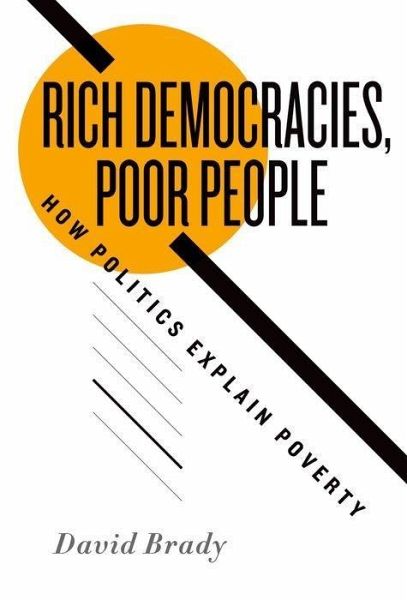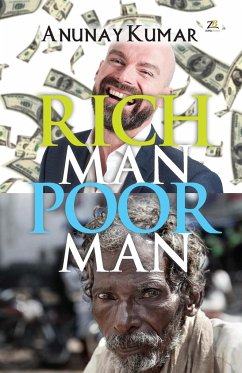
Rich Democracies, Poor People
How Politics Explain Poverty
Versandkostenfrei!
Versandfertig in 1-2 Wochen
47,99 €
inkl. MwSt.
Weitere Ausgaben:

PAYBACK Punkte
24 °P sammeln!
This book highlights that among affluent Western societies, there is immense cross-national and historical variation in poverty, and seeks to determine what makes poverty so entrenched in some affluent democracies when it is a solvable problem in others. Brady points out that where poverty is low, equality has been institutionalized, and that where poverty is widespread, there has been a failure to institutionalize equality. This book effectively tackles the issueof how this collective responsibility is conceived and institutionalized, by defining the mechanisms that shape this ideology, or pr...
This book highlights that among affluent Western societies, there is immense cross-national and historical variation in poverty, and seeks to determine what makes poverty so entrenched in some affluent democracies when it is a solvable problem in others. Brady points out that where poverty is low, equality has been institutionalized, and that where poverty is widespread, there has been a failure to institutionalize equality. This book effectively tackles the issueof how this collective responsibility is conceived and institutionalized, by defining the mechanisms that shape this ideology, or prevent it from coming into being, thus taking a broad new approach towards eliminating poverty.













